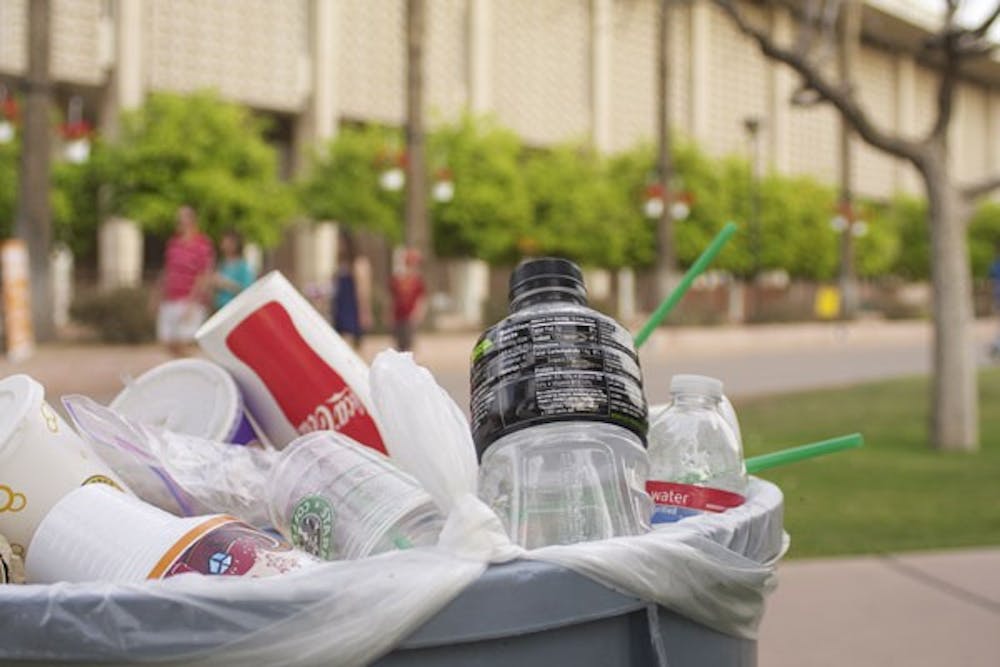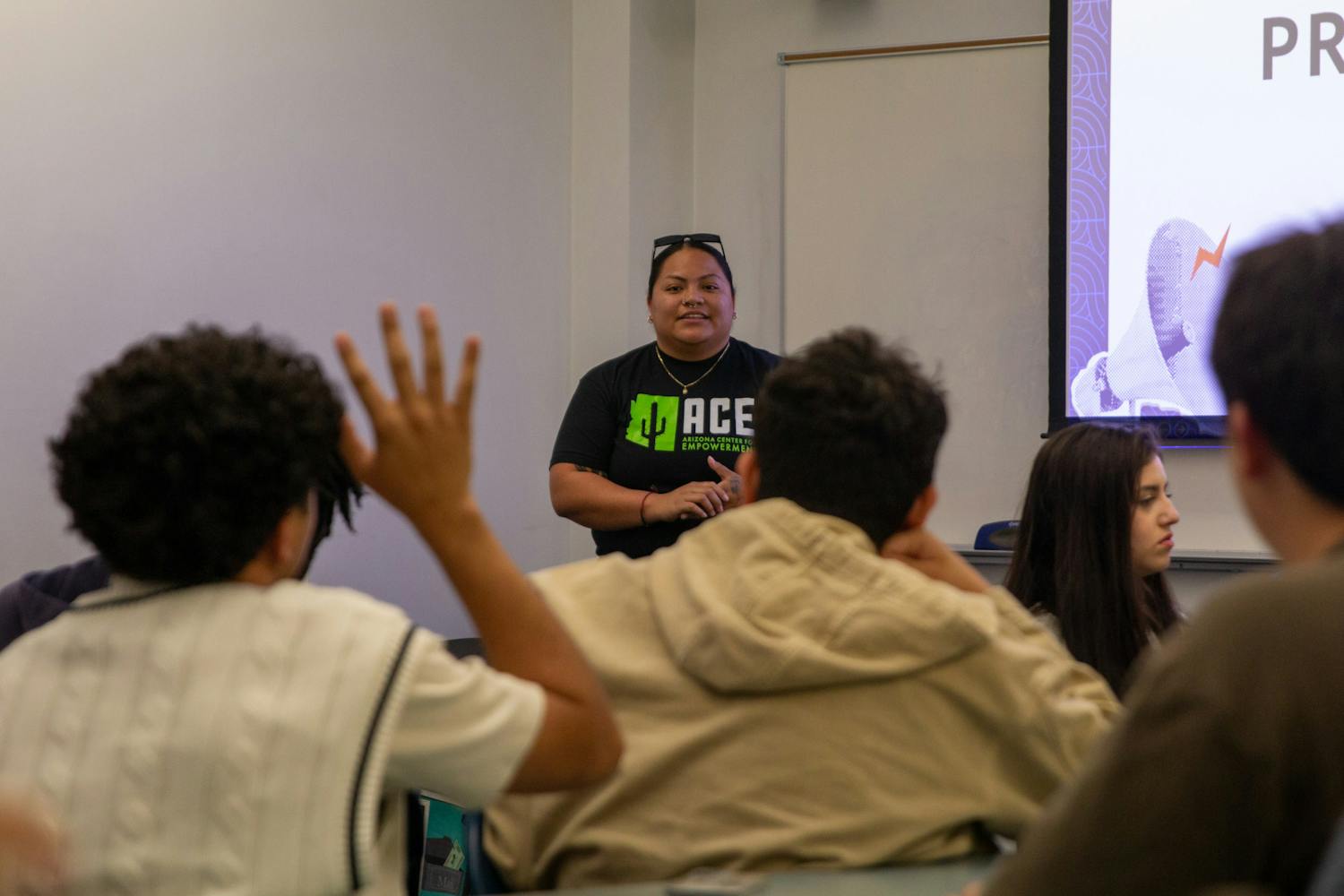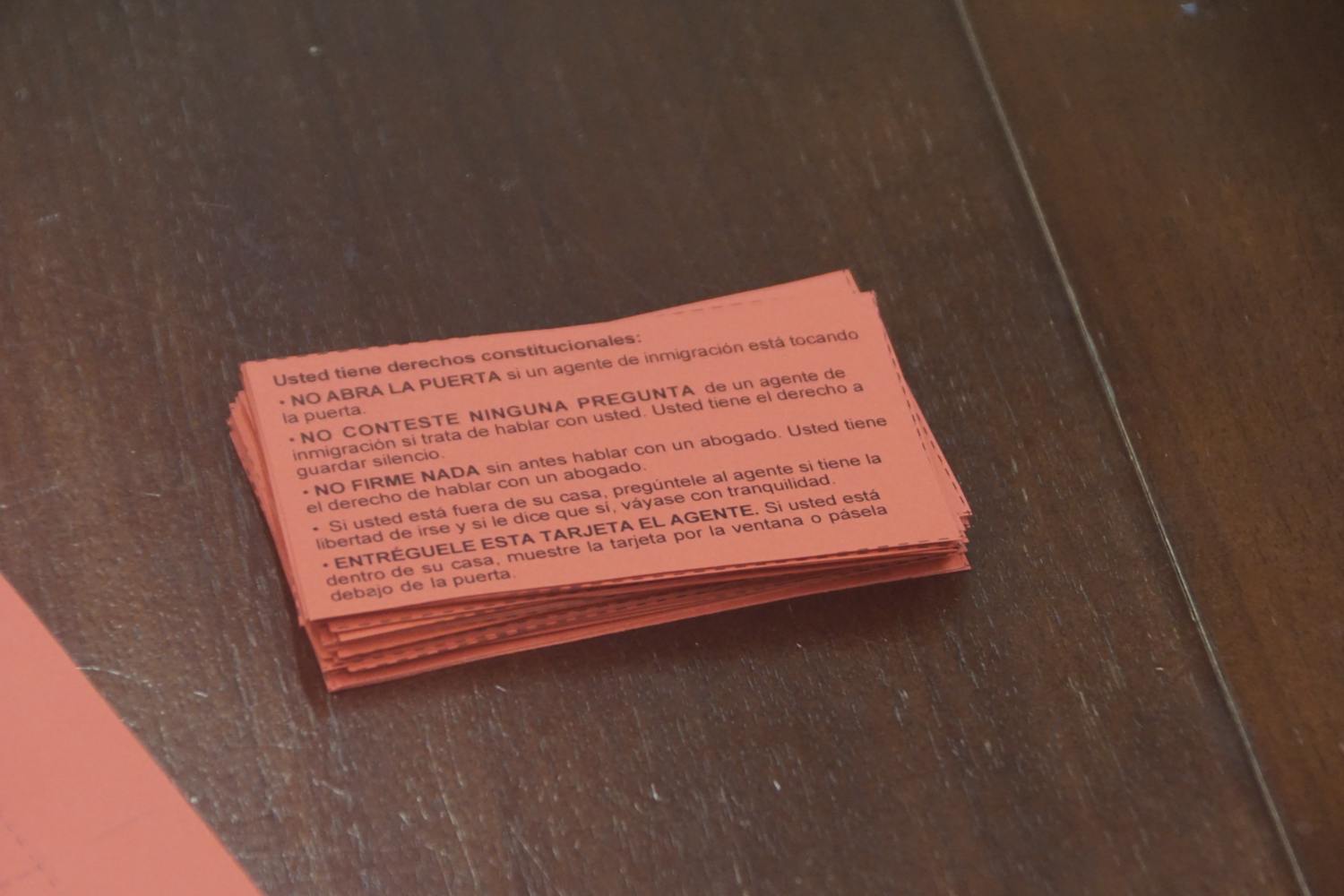An ASU professor has recently completed research exposing some of the potential hazards of plastics both to people and the environment, suggesting ways to design next generation green materials.
Rolf Halden, associate professor in the School of Sustainable Engineering at ASU and assistant director of Environmental Biotechnology at the Biodesign Institute, combed through more than 100 studies on the subject.
The problem is how prevalent the materials are, and the way they are made, he said.
“Depending on who conducts the study, the conclusions are quite different, so the hope was to find someone to review it who doesn’t have a stake, and it fell to me,” said Halden.
In the production of plastic, polymers are fused together using chemical bonds.
The connections are random, while natural processes produce patterns. Thus, microorganisms have a hard time breaking the material down.
“Now we are facing a situation where we mass produce and consume products that have a useful lifespan on the order of minutes and hours, but they endure in the environment for centuries or millennia, and that is a real concern,” he said.
Trash heaps of these non-biodegradable materials in the ocean can be as large as Texas.
“In some areas of the ocean, the plastic waste by weight outweighs plankton,” Halden said. “So for every piece of plankton that organisms pick up, they also run into six pieces of plastic that may cause suffering.”
Some of the ways trash can accumulate in the oceans include beach litter, discharged waste from coastal cities and boats dumping waste.
“The lifetime of these materials in the ocean is on the order of hundreds of years, and so that creates a huge issue,” Halden said.
He warns that without changes, the problem will continue to worsen.
“It really is not practical to tightly regulate the afterlife of plastic products,” he said. “The best way to ensure there are not detrimental long-term effects is to design products that break down in a reasonable time frame.”
He added that these next-generation plastics should be made of less toxic building blocks and should decompose more naturally.
“There needs to be a better balance between the useful lifespan of these compounds and their afterlife. There is a complete mismatch right now that we need to address,” said Halden. “We need to rethink our approach of whether we need plastics in all these settings where we use them right now, and if we decide we do, we should replace them with smarter materials.”
However, he emphasized personal responsibility and awareness instead of focusing on the size of the problem.
“Rather than panic, the right approach is to take a good look at what we put into our shopping bags and avoid products made of plastics when there are alternatives on the shelf,” he said. “Voting with the pocketbook goes a long way in terms of changing chemical production.”
Some ASU students have started changing their habits because of research like this. Business sophomore Julie Siegel said she uses a canteen in lieu of plastic bottles.
“I drink a lot of water, and I just got tired of using so many bottles,” she said. “I felt bad using something for an hour and throwing it away.”
Not only is it good for the environment, but it also makes economic sense, Siegel said.
“It ends up being cheaper, not having to use as many bottles,” she said. “It makes it easy to be green when it saves me money.”
Reach the reporter at dana.sheaff@asu.edu





